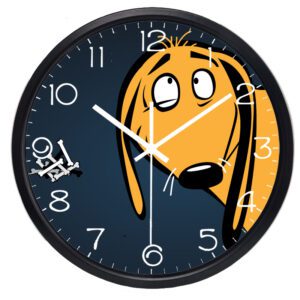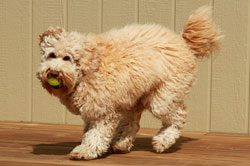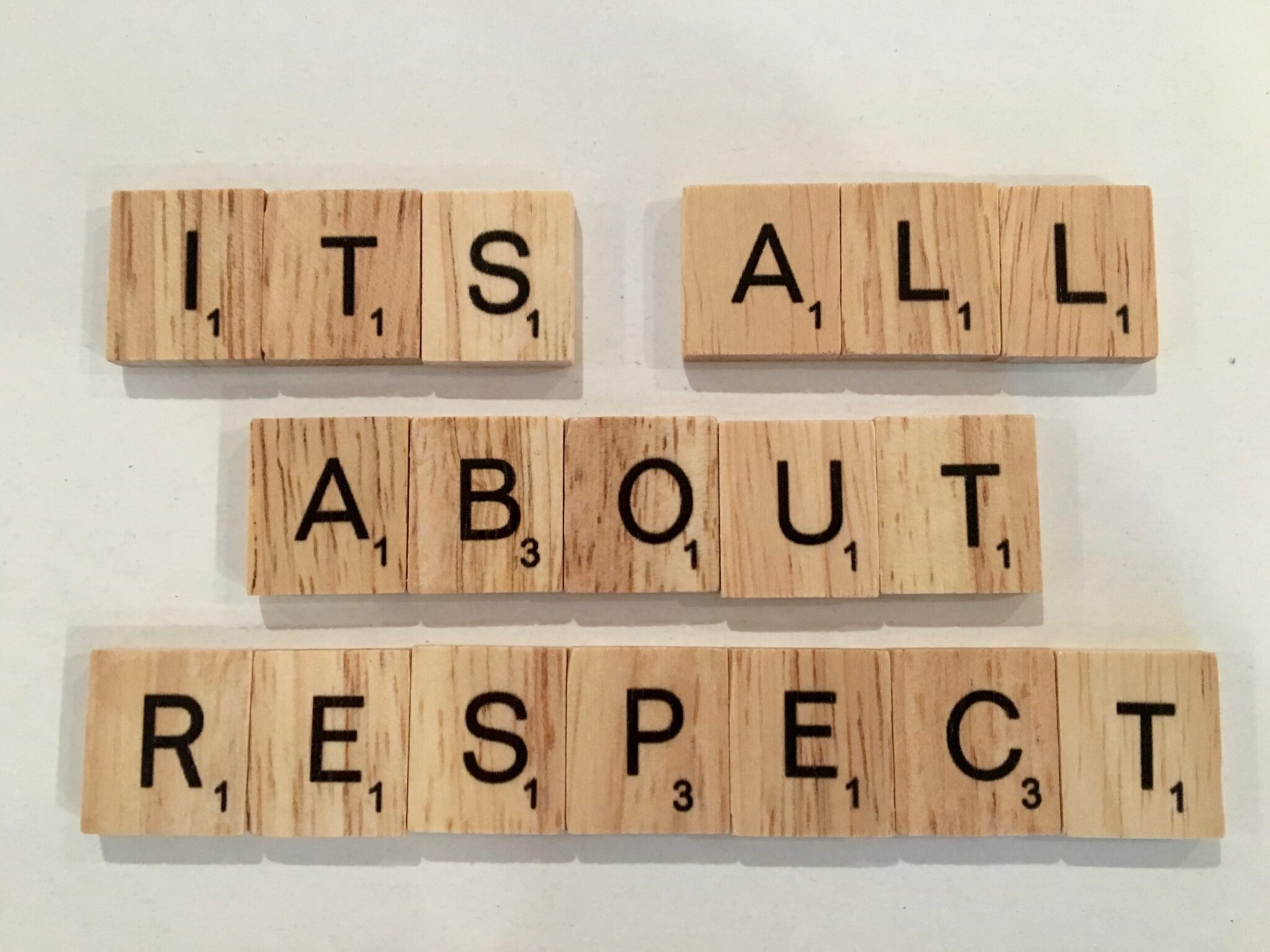“R-E-S-P-E-C-T, find out what it means to me.” Aretha Franklin sang a long time ago about her need for some respect & it has become a theme in many aspects of our world. Respect is a huge part of our human world. We tend to shy away from relationships or occupations that lack respect & gravitate towards ones that show us the respect we naturally desire. This is a very normal pattern in most humans. But what about dogs? Is it different for them?
 At the core of every dog, they are looking for a believable & balanced leader. If they do not find that then they take it upon themselves to fill the leadership role & be respected. Our response to our dogs when they don’t listen or “respect” us by doing what we ask is to get louder & larger typically. We speak more firm, we try to force them to obey, & we become more assertive. In some cases a dog will realize they messed up & respond accordingly. However, you probably haven’t owned a dog & not experienced the pure frustration of trying to demand their respect while they continue to disobey (ie. not recalling, continuing to pull on a leash, peeing/pooping in the house, chewing on shoes, etc).
At the core of every dog, they are looking for a believable & balanced leader. If they do not find that then they take it upon themselves to fill the leadership role & be respected. Our response to our dogs when they don’t listen or “respect” us by doing what we ask is to get louder & larger typically. We speak more firm, we try to force them to obey, & we become more assertive. In some cases a dog will realize they messed up & respond accordingly. However, you probably haven’t owned a dog & not experienced the pure frustration of trying to demand their respect while they continue to disobey (ie. not recalling, continuing to pull on a leash, peeing/pooping in the house, chewing on shoes, etc).
Dog leadership & gaining their respect starts with a balanced leader. Recent studies show that anxious or disobedient dogs live in a environment where they see anxiousness modeled or a home with lack of structure. As dog owners we all have to look in the mirror to see what we are modelling to “man’s best friend”. One common mistake with dog ownership is we see the puppy stage as a quick period of time where the puppy learns to thrive & then once they are mostly full grown & have mastered potty training then we stop the training. We then get frustrated when behaviors pop up. When your puppy is 9-months old & near full growth they are about the age of a Kindergartner in human terms. Would we stop teaching our 5-year old human children? Some would argue our 25-year old children need our constant support & training as well! When a dog learns your routines & your structure that is not a moment of “completion”.
Respect is something that is earned but not taught. You cannot teach your dog to respect you. There is no magic switch. There are a few keys to earning their respect which ultimately leads to their trust which ultimately leads to their consistent obedience:
1.) Time
 Doodles long for attention. Whether your dog is food motivated or not…the driving force in their DNA is your attention. While laying with them on the couch for a snuggle after a long day at work is special to them, they desire your dedicated time. Think through what they like to do (ie. fetch, tug-o-war, walks, car rides, puppuccino, etc). Spending dedicated time with your Doodle & during that event giving them your full attention will show them they matter to you. A walk with you while you’re on the phone is something a Doodle notices. A car ride with you while you tell them to be quiet in the back seat while you talk to your spouse is something they notice. By no means should a dog consume your life, but they do need to have dedicated time in your life where they feel important. Eye contact is a huge component for dogs. So any “time” you offer to your Doodle, make sure it is dedicated time so it makes the impact both you & your Doodle are hoping for!
Doodles long for attention. Whether your dog is food motivated or not…the driving force in their DNA is your attention. While laying with them on the couch for a snuggle after a long day at work is special to them, they desire your dedicated time. Think through what they like to do (ie. fetch, tug-o-war, walks, car rides, puppuccino, etc). Spending dedicated time with your Doodle & during that event giving them your full attention will show them they matter to you. A walk with you while you’re on the phone is something a Doodle notices. A car ride with you while you tell them to be quiet in the back seat while you talk to your spouse is something they notice. By no means should a dog consume your life, but they do need to have dedicated time in your life where they feel important. Eye contact is a huge component for dogs. So any “time” you offer to your Doodle, make sure it is dedicated time so it makes the impact both you & your Doodle are hoping for!
2.) Balanced Energy
 If your Doodle is seeing a lot of loud or expressive talking in the home they will begin to model that. Some will become vocal themselves. Others will internalize it & become overly excited or anxious depending on their personality. If we talk to our Doodles in a high pitched tone or “baby talk” as some trainers call it then we create a dynamic of how our Doodle views us. Remember, Doodles can only learn around 200 words on average. So the majority of how we speak to them is NOT your words they are hearing, but rather your tone & body language. Consider what they are seeing & hearing…you bending down, you speaking in a high voice, & your face scrunched up in a fun-happy way while you pet them. While this is endearing, it can also confuse a dog as to how they view you. In a pack environment they don’t see their mother or father interact with them like that. Consider a time you have seen an adult dog interact vocally or in body language in the manner I am describing we do as humans. While an adult dog may play with a puppy and prance around, this would be the equivalent of us running with them in a backyard. However, us greeting our Doodle in a high pitched voice saying “Hi boo-bear. How’s mama’s little sugar dumpling? Who’s a good boy? Who’s a good boy? That’s right…you are Mr. Pricklepants”. Now fast forward 20-mins to when that sweet “Mr. Pricklepants” is barking at the mailman while you’re making dinner & you’re trying to tell him to stop…are you a believable leader to him? I am not implying you can’t have fun with your pet. I am not implying you cannot engage in endearing ways. What I am stating is to be a balanced leader around your Doodle. Be calm. Be assertive. Be authoritative while also showing affirmation and affection. You body language & voice tones show your Doodle whether you are balanced or not. They will follow & respect a balanced leader!
If your Doodle is seeing a lot of loud or expressive talking in the home they will begin to model that. Some will become vocal themselves. Others will internalize it & become overly excited or anxious depending on their personality. If we talk to our Doodles in a high pitched tone or “baby talk” as some trainers call it then we create a dynamic of how our Doodle views us. Remember, Doodles can only learn around 200 words on average. So the majority of how we speak to them is NOT your words they are hearing, but rather your tone & body language. Consider what they are seeing & hearing…you bending down, you speaking in a high voice, & your face scrunched up in a fun-happy way while you pet them. While this is endearing, it can also confuse a dog as to how they view you. In a pack environment they don’t see their mother or father interact with them like that. Consider a time you have seen an adult dog interact vocally or in body language in the manner I am describing we do as humans. While an adult dog may play with a puppy and prance around, this would be the equivalent of us running with them in a backyard. However, us greeting our Doodle in a high pitched voice saying “Hi boo-bear. How’s mama’s little sugar dumpling? Who’s a good boy? Who’s a good boy? That’s right…you are Mr. Pricklepants”. Now fast forward 20-mins to when that sweet “Mr. Pricklepants” is barking at the mailman while you’re making dinner & you’re trying to tell him to stop…are you a believable leader to him? I am not implying you can’t have fun with your pet. I am not implying you cannot engage in endearing ways. What I am stating is to be a balanced leader around your Doodle. Be calm. Be assertive. Be authoritative while also showing affirmation and affection. You body language & voice tones show your Doodle whether you are balanced or not. They will follow & respect a balanced leader!
3.) Consistency
 A Doodle will push boundaries if given the opportunity. Especially a younger puppy. When you are asking the question if your Doodle respects you, one of the first things that builds this respect is when they see consistent leadership from you. Showing them what you want. Not just saying it. Showing them where to go & where not to go. Showing them what to touch & what not to touch. Showing them how to interact & how not to react. Remember, they only understand a limited amount of words. So seeing consistency from you shows them you care. As an example, it has been a long day at work. You are finally home. You heated your dinner, you are sitting down to finally watch your favorite show & sweet little Fido is at the front windows going nuts because he sees a dog walking by the window. Option #1 is to call the dog to you numerous times. However, the more you call the more he thinks you’re joining in the fun! You become frustrated so you begrudgingly get up off the couch, redirect the dog, & close the blinds. Not only did the dog not behave the way you wanted to, but you are also tired and annoyed you had to get up. Now what is the tone that everyone has picked up on? F-R-U-S-T-R-A-T-I-O-N! Now consider Option #2. Your dog is not successful with recall while they are overstimulated. You are working on it, but you know they are not having success yet. The best way to build success is to create success in training. The moment the barking starts, getting up, a gentle redirect, taking the distraction away (closing blinds), & then rewarding their behavior shows them action. While you are tired & it can be hard, the dog sees your effort. They aren’t necessarily testing you in this example. They are just overstimulated by seeing the dog & reacting in the only way they know. However, over time they are seeing your consistency. They are learning “if I bark, they will redirect me” until one day you notice…”wait…they…aren’t…barking”! Your consistency will form bonds & trust in your Doodle. Those two things equal to obedience once they know what you’re asking them to do & ultimely? R-E-S-P-E-C-T!
A Doodle will push boundaries if given the opportunity. Especially a younger puppy. When you are asking the question if your Doodle respects you, one of the first things that builds this respect is when they see consistent leadership from you. Showing them what you want. Not just saying it. Showing them where to go & where not to go. Showing them what to touch & what not to touch. Showing them how to interact & how not to react. Remember, they only understand a limited amount of words. So seeing consistency from you shows them you care. As an example, it has been a long day at work. You are finally home. You heated your dinner, you are sitting down to finally watch your favorite show & sweet little Fido is at the front windows going nuts because he sees a dog walking by the window. Option #1 is to call the dog to you numerous times. However, the more you call the more he thinks you’re joining in the fun! You become frustrated so you begrudgingly get up off the couch, redirect the dog, & close the blinds. Not only did the dog not behave the way you wanted to, but you are also tired and annoyed you had to get up. Now what is the tone that everyone has picked up on? F-R-U-S-T-R-A-T-I-O-N! Now consider Option #2. Your dog is not successful with recall while they are overstimulated. You are working on it, but you know they are not having success yet. The best way to build success is to create success in training. The moment the barking starts, getting up, a gentle redirect, taking the distraction away (closing blinds), & then rewarding their behavior shows them action. While you are tired & it can be hard, the dog sees your effort. They aren’t necessarily testing you in this example. They are just overstimulated by seeing the dog & reacting in the only way they know. However, over time they are seeing your consistency. They are learning “if I bark, they will redirect me” until one day you notice…”wait…they…aren’t…barking”! Your consistency will form bonds & trust in your Doodle. Those two things equal to obedience once they know what you’re asking them to do & ultimely? R-E-S-P-E-C-T!
As we talk about respect, many dog owners & even trainers try to demand respect out of force & fear. An anxious & fearful dog that obeys doesn’t respect you. They are simply afraid to mess up. An owner can be firm & assertive without building fear. Conversely, many dog owners & even training try to manufacture respect out of connection & affection. What this creates is a dog who thinks they are the boss, get to make the rules, & you are there for their pleasure. While both approaches have truth embedded in them, you can quickly see how a dog gets out of balance with the approaches. A dog needs three things: 1.) Exercise 2.) Discipline & 3.) Affection. It needs to be in that order every day as well. Then when you mix in 1.) Time 2.) Balanced Energy & 3.) Consistency you will begin seeing a balanced, obedient, & affectionate dog who you understand & they understand you.
Remember, dog ownership is what you make of it. You are their whole word. Don’t let them not be a huge part of yours!
 Robby Gilliam
Robby Gilliam
Owner/Breeder/Lead Trainer
Mountain View Doodles ©

